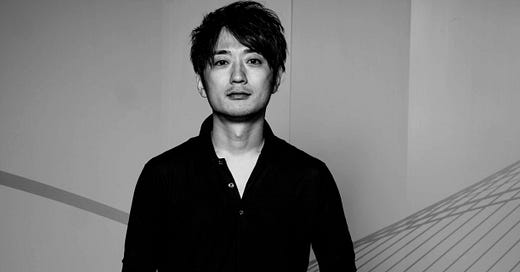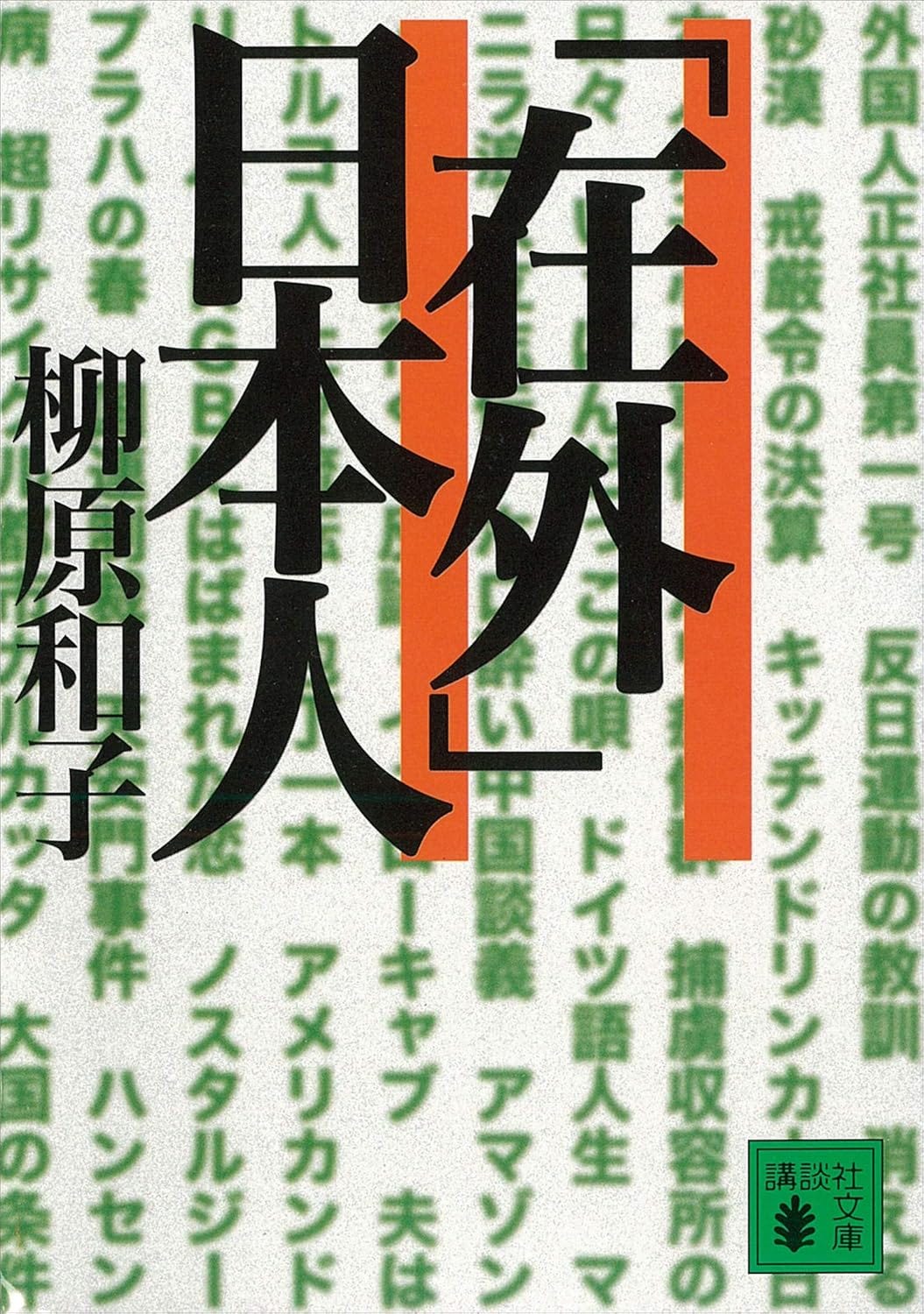About the Writer
I am Yohei Hayakawa, a professional interviewer and media producer based in Japan. Since founding Kiqtas Inc. in 2008, I've had the privilege of conducting in-depth interviews with global luminaries across various fields. My conversations have included:
- Kevin Kelly, founding editor of WIRED and renowned futurist
- Yoko Tawada, award-winning multilingual author
- Yuzuru Hanyu, two-time Olympic figure skating champion
- Banana Yoshimoto, internationally acclaimed novelist
- Kenzo Takada, iconic fashion designer
My work extends beyond celebrity interviews. I've dedicated significant effort to "Memories of War," a project amplifying the voices of war survivors worldwide. I also produce podcasts for public institutions, corporations, and authors, reaching millions of listeners globally.
My podcasts receive about 2 million downloads monthly, with a cumulative total exceeding 300 million. Notable productions include "We are Netflix Podcast@Tokyo" and "Yokohama Museum of Art 'Radio Art Museum'."
Through my interviews and media projects, I strive to bridge cultures, generations, and perspectives, offering insights that can update and enrich our lives.
For more information, visit my website: https://yohei-hayakawa.com/en.html
Domestic Dreamer, Global Seeker: A Interviewer's Dual Life"
108 Lives and Me
My job is to listen to people's stories.
As an interviewer, I delve into various lives. Why someone like me, who's not particularly adept at socializing, chose this profession is honestly beyond my own understanding.
However, I've pondered this: While most people can only live their own lives, I'm fortunate (or so I believe) to be different. Through interviews, I can glimpse countless lives. It's almost magical.
Recently, I heard an actor on the radio say, "The charm of this job is becoming different people." Indeed, perhaps an interviewer's job is somewhat similar.
Ino Tadataka began mapping Japan at 55, after retiring, utilizing astronomy and surveying skills he'd started learning at 49. His life is described as "one body, two lives." If so, perhaps my work could be called "one body, infinite lives."
I think of myself as a chameleon.
I don't excel at anything in particular. But that's precisely why I can listen to anyone's story, adapt to any life. I absorb a bit of each color into myself. That's how I hope to grow, little by little.
For the past decade, I've been interviewing people I call "COSMOPOLITAN" - a term I coined. These are individuals who live beyond the constraints of era or environment, residing abroad or constantly traveling the world.
Listening to them exhilarates me. It's like opening a door to an unknown world. They live daily lives beyond our imagination, full of surprises and sometimes inspiring courage.
Their stories overflow with hints on how to live in an unpredictable world. After all, they're living "days full of the unexpected," far removed from their home country's norms.
To meet them, I've overcome my long-standing fear of flying and travel abroad annually. It might not be cost-effective in the short term, but I believe it's the best "self-investment" in the long run.
One day, an editor introduced me to a book called "『在外』日本人" (Zaigai Nihonjin, which translates to "Japanese Living Abroad"). The author, Kazuko Yanagihara, had traveled the world over 30 years ago, interviewing 108 Japanese people who had made their lives outside of Japan.
Hearing about this, I was shocked.
It felt like someone had already done what I wanted to do. Moreover, before I was even born, in an era far less convenient than today.
Yanagihara spent four years visiting 40 countries and 65 cities to create this book. In an age without our current internet environment. I'm truly in awe of her efforts.
Reading the book, two stories particularly stood out to me.
One is about Takako Kato, who reset her life at 40, wandering the world before opening a café in Los Angeles. She says, "What does age matter anyway?"
Kato had lived for 20 years as an artist's wife and mother of two. One day, she decided to "graduate" from that life and set out on a solo journey around the world.
She says, "For twenty years, I think I did a really good job as a wife. Artists need 24-hour support, they're always worrying about something. They seem to think earning money to eat is the wrong way to live. I myself tried to believe that art was a more noble pursuit than eating. But enough of that."
Kato's story reminds me of when I was 29, dropping out of society to dive into the unknown world of "podcasts and interviews." It was just before my first child was born. I was on the edge of a cliff. Starting a business wasn't glamorous; one misstep could have left my family destitute. But I took the leap. I had no guarantees, I was terrified, but I couldn't stop myself from pursuing "podcasts and interviews."
When I jumped off that cliff, I found I had wings. For the past 20 years, I may be flying low, but thankfully, I've been able to keep flying on a path I love.
The other story is about Nobu Matsuhisa, a world-renowned chef and founder of the restaurant "NOBU." He says, "I don't care about prices. If you think about how much profit you'll make today, you can't do good work as a craftsman."
Matsuhisa's career is filled with ups and downs. Starting as a dishwasher in Japan, he faced a turning point in Peru, a fire in Alaska, and overcame numerous hardships. In Peru, he laid the foundation for Nikkei cuisine, a fusion of Japanese and Peruvian cooking. However, differences arose between Matsuhisa, who wanted to use the best ingredients regardless of cost to create new dishes, and the owner who wanted to "make profit with small capital, safely." This led to Matsuhisa's eventual departure.
Matsuhisa's unwavering commitment to using the best ingredients, even when it meant his food cost ratio was an unthinkable 50-60%, resonates with me. It reminds me of my own dedication to the quality of my interviews, investing time and resources, believing it leads to better work.
This attitude is common among many top professionals I've met. For instance, Genjiro Okura, a Living National Treasure of the kotsuzumi (small hand drum), said, "I don't think about cost-effectiveness." Jewelry designer Naohito Utsumi emphasized the importance of "how creative you can be, rather than how much you can earn." Artist Tadanori Yokoo laughingly said, "Whether to use red or blue was a bigger problem than money."
They all pursued quality over immediate profit. And in the long run, this led to their success.
Reading this book, something grows inside me. It might be hope, courage, or perhaps mere curiosity.
But one thing is certain.
There's no single right answer in life. However, a life that follows your beliefs and continues to challenge itself always has value.
That's why I'll keep listening to the stories of these "COSMOPOLITANS." And someday, I hope to compile a book of stories about energetic people living around the world, from the perspective of "Earth citizens."
That might be my way of living "one body, infinite lives."
Finally, I want to touch on the value of this book, "Japanese Abroad."
The 108 lives packed into this paperback of over 900 pages give us new perspectives and courage. It's like traveling through 108 different worlds.
It's amazing that Yanagihara's efforts and the precious records of these 108 people are available for just 1500 yen. To think that stories with the potential to change your life can be read at this price.
I want to express my heartfelt respect to the author, Yanagihara. The fact that her work still resonates strongly after more than 30 years is proof of its universal value.
Many of those featured in this book may have passed away by now. On the other hand, some, like Matsuhisa, are still active at the forefront of their fields. While following up on their stories, I want to weave new tales of "Earth citizens."
This book has a value that can't be measured in money. The 108 lives within it are sure to push you towards your next step. I hope you'll pick it up and read it.
Latest Interview
LIFEUPDATE: The Interview Magazine That Updates Your Life. This month's guest is Kevin Kelly, founding editor of WIRED and a globally renowned thinker who continually explores the relationship between science, technology, and humanity. In this first part of our interview, we focus on his latest book, "Excellent Advice for Living," while delving into the importance of being "different" - from his reasons for wearing the same style and color of clothes to his hobby of collecting tree bark photographs. What does it mean to live without fear of failure and never losing curiosity? We probe into the mind of this 72-year-old who continues to traverse the world. The keyword is "weird."
Thank you for reading to the end.
Wishing you a wonderful weekend!
Yohei Hayakawa
Global Conversationalist & Interview Specialist
Website
Contact us: inquiry@kiqtas.jp





